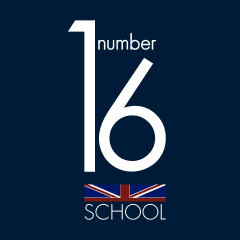CÓMO USAR CORRECTAMENTE EL FUTURE PERFECT
El future perfect o futuro perfecto simple en español es uno de los tipos de futuro que existen en inglés. En este post te vamos a explicar cuándo utilizamos el future perfect, su estructura y algunas expresiones útiles que podéis usar con este tiempo verbal. 🚀
¿CÓMO UTILIZAMOS EL FUTURO PERFECTO EN INGLÉS?
El “future perfect” lo utilizamos para hablar de acciones que acabarán antes que otra acción posterior en el futuro.
Por ejemplo:
“I will have studied for my exam before I go to bed”
Habré estudiado antes de irme a dormir.
“You will have finished your dinner by the time I get home.”
Habrás acabado tu cena antes de que llegue a casa.
“They will have left when the game starts.”
Se habrán ido antes de que empiece el juego.
Todas estas frases contienen dos acciones que pasan en el futuro, pero la primera acción siempre termina antes de que la segunda empiece.
TIP! La palabra will la podemos contraer, por ejemplo:
“I will have eaten my food before you go to sleep.”
“I’ll have eaten my food before you go to sleep.”
Utilizar la palabra completa “will” no es incorrecto, sino que lo podemos utilizar para dar énfasis a la palabra.
FUTURE PERFECT SIMPLE: ESTRUCTURA
Frases afirmativas con future perfect:
SUJETO + WILL + AUXILIARY VERB (HAVE) + PAST PARTICIPLE
“I will have spent all the money before Christmas.”
“We will have gone on holiday before the end of the year.”
“They will have played 4 matches before 8pm.”
Frases negativas con future perfect
SUJETO + WILL + NOT + AUXILIARY VERB (HAVE) + PAST PARTICIPLE
“I will not have finished my exam before 1pm.”
“They will not have gone to bed before we get back.”
“You will have got your driving license by your 21st birthday.”
Frases interrogativas con future perfect
WILL + SUJETO + AUXILIARY VERB (HAVE) + PAST PARTICIPLE
“Will you have played all your matches by 6pm?
“Will we have arrived before the match starts?”
“Will they have bought a house already?"
EXPRESIONES ÚTILES Y FUTURE PERFECT EXAMPLES
- By the time = Cuando/Para cuando:
“By the time he gets back, I will have gone to bed.”
- By = Para/Hacia:
“They will have had a baby by 2030.”
- By then = Para entonces
“I will have bought a house by then.”
- Before = Antes
“We will have arrived before it gets dark.”
Esto ha sido una pequeña introducción al future perfect. Ahora ya puedes empezar a utilizarlo en tu día a día. Si quieres saber más sobre el fututo en inglés en inglés mira este post sobre el future continuous. 👀
Si lo que quieres es reforzar tu nivel de inglés, no olvides que en Number 16 ofrecemos cursos de inglés cualquiera que sea tu edad, ubicación y objetivo. 🙌
See you soon! 🖐
Pronunciación avanzada: entrena acento británico y americano online
Técnicas y herramientas para mejorar tu pronunciación en inglés (británico y americano) con feedback automático y ejercicios prácticos.
Clases híbridas de inglés: cómo combinar presencial y online de forma óptima
En los últimos años, la enseñanza de idiomas ha avanzado de manera acelerada. Entre las metodologías más efectivas nos encontramos el modelo híbrido, una combinación de clases presenciales y online que potencia el aprendizaje.
Por qué ya no se canta God Save the Queen: historia reciente del himno
Descubre el cambio de letra del himno británico tras la muerte de la Reina y datos curiosos sobre su historia.




